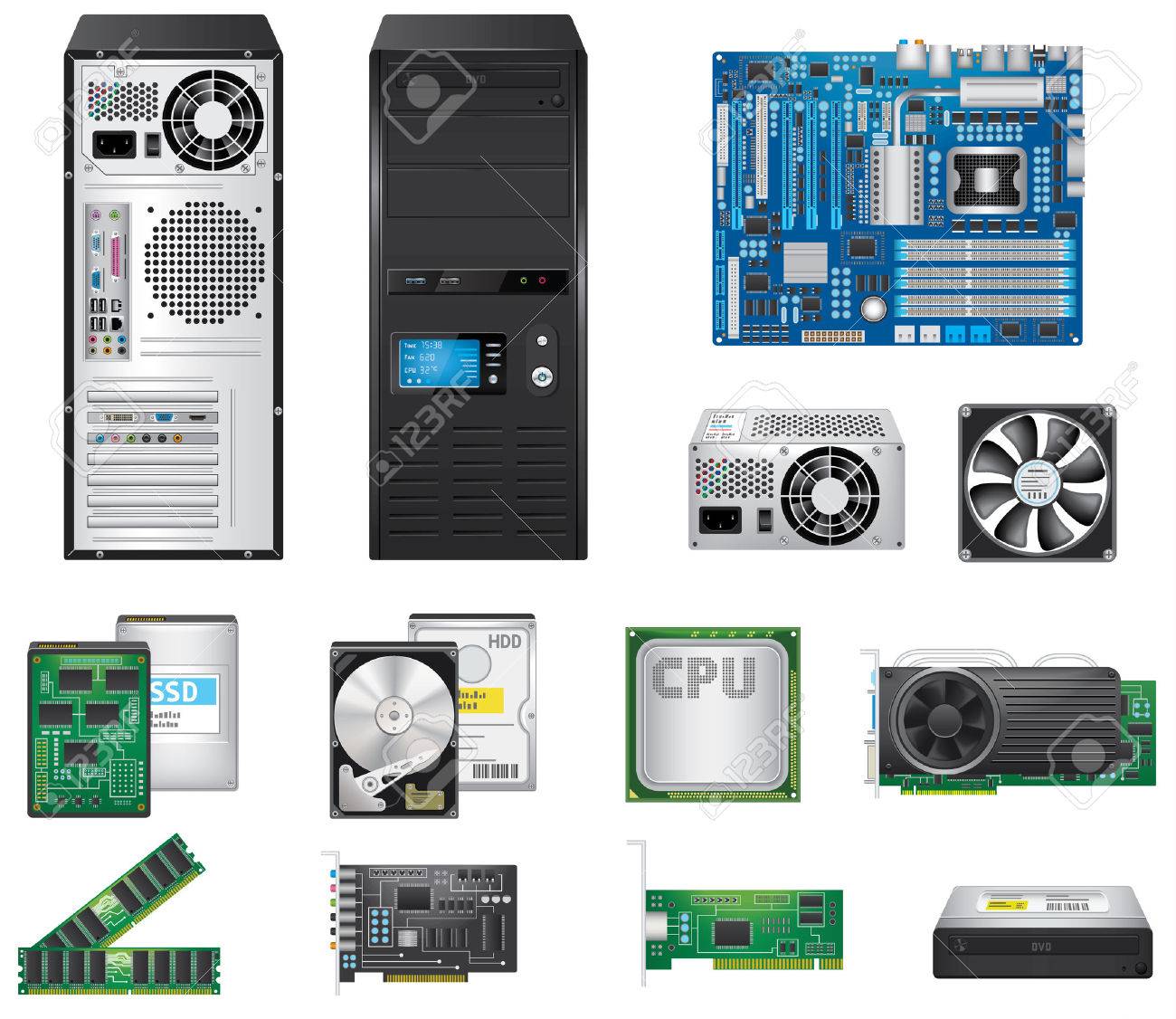In today's technologically driven world, computers are increasingly essential devices in both private and business environments. Nonetheless, the swift rate of innovation frequently leaves a trail of unused computer parts that are left unused, offering a remarkable chance for recycling enthusiasts and astute shoppers. As companies and consumers improve their infrastructure, the components of outdated technology can be reclaimed, refurbished, and given a second life, contributing not just to environmental responsibility but also to budget-friendly solutions for those looking to build or enhance their technical systems.

Purchasing surplus computer parts can be a fulfilling venture, provided you know what to look for the components and how to explore the environment. Whether you're a video game enthusiast on a tight budget or a do-it-yourself tech fan, comprehending the nuances of surplus components can open doors top-notch devices at a reduced of the cost. This guide intends to simplify the method of acquiring surplus computer parts, covering key tips, best practices, and considerations before finalizing a buy. Join us as we investigate the future of recycling with surplus computer components and empower your digital skills.
Handbook to Buying Excess PC Components
As it pertains to purchasing excess hardware, the first action is to find reliable vendors. Search for reputable retailers, e-commerce sites with good ratings, and niche mills. It's crucial to check testimonials and examine the return policies to guarantee your investment is safe. Numerous providers will also supply comprehensive information and specifications of their items, which can aid you evaluate their condition and suitability for your needs.
Next, acquaint yourself with the types of items you desire. Do you require a motherboard, CPU, or memory? Understanding your exact criteria can spare you time and frustration during the buying journey. Take https://head-moses.mdwrite.net/discovering-treasure-in-excess-computer-components-a-manual of compatibility issues, including socket specifications and RAM specifications, which can affect whether a component will function with your current system. Obtaining a general idea of price trends can also help you in recognizing a steal versus an overpriced product.
Lastly, examine the state of surplus parts before making a buy. Look for physical damage, wear and tear, and any indicators of problems. If possible, request test reports or guarantees, as these can give further reassurance of operational quality and trustworthiness. With experience in skills buying excess parts, you'll develop a sharp perspective for performance and be better prepared to make informed decisions on your next buys.
Reviewing Quality and Value of Excess Parts
When assessing extra computer components, the initial step is to assess their physical state. Look for any marks of usage, such as blemishes, oxidation, or discoloration. Components that seem well-maintained and clean often indicate better handling over their lifespan. Pay particular attention to interfaces and connectors; any damage or bent contacts can compromise connection and functionality. Additionally, look for original packaging and manuals, as these can be signals of whether the component has been properly cared for.
Next, it's critical to validate the specifications against your requirements. Surplus parts may present a range of capability levels, and knowing exactly what you search for will help you avoid the challenges of incompatibility. For instance, when selecting a used mainboard, ensure that it supports your desired processor, memory type, and upgrade options. Investigating compatibility before making a selection can save you significant time and effort in the long run.
Lastly, think about the supplier from which you are purchasing the surplus components. Reputable suppliers will often offer guarantee options or guarantees that can add substantial value to your purchase. Customer feedback and scores should also be checked to gauge the standing of the vendor. Focusing on trustworthy sources not only boosts your chances of finding high-quality components but also helps ensure that you are not inadvertently buying counterfeit products.
Boosting Your Shopping:
Tips for Winning
While diving into the world of extra PC parts, being informed can make all the difference. Begin by researching credible sources and sellers to make sure you are dealing with reliable products. Looking for feedback or testimonials can assist you assess the reliability of a provider. Additionally, educate yourself with current prices for items so you can identify a great offer when you come across one. This initial groundwork is vital for efficient shopping.
Another key recommendation is to rigorously assess the condition of the items you intend to purchase. Be sure to ask for details about the item's history and performance, and whenever feasible, inspect the part ahead of completing the transaction. For computer surplus like motherboards, processors, and GPUs, a hands-on inspection can expose potential issues that may not be evident in internet postings, allowing you to prevent costly blunders.
Lastly, think about the subsequent implications of your acquisitions. Choose for components that offer compatibility with a broad spectrum of configurations, notably if you intend to enhance in the coming times. Understanding the durability and performance of surplus components will aid in making economical choices. Remain open to bargaining and stay calm as you hunt for the finest bargains; your efforts will ultimately improve your achievements in upcycling.
